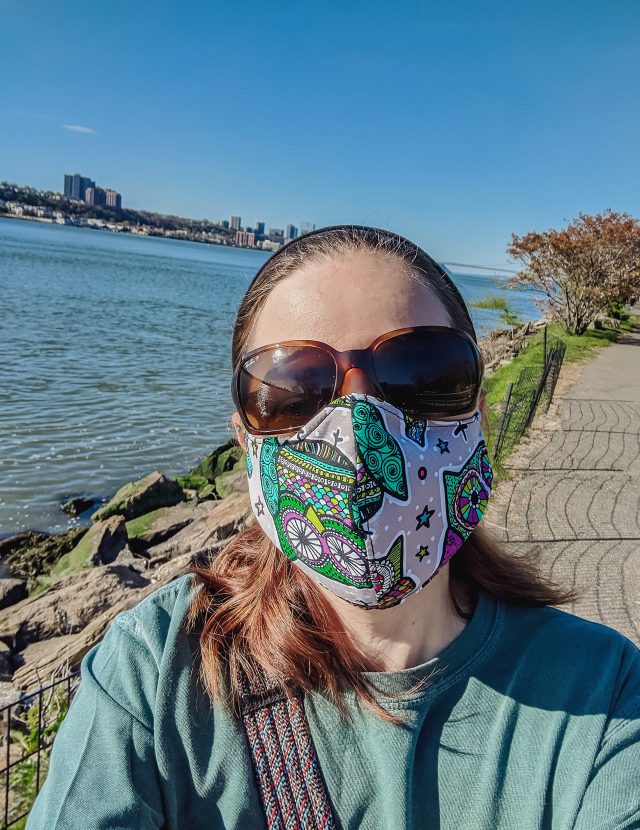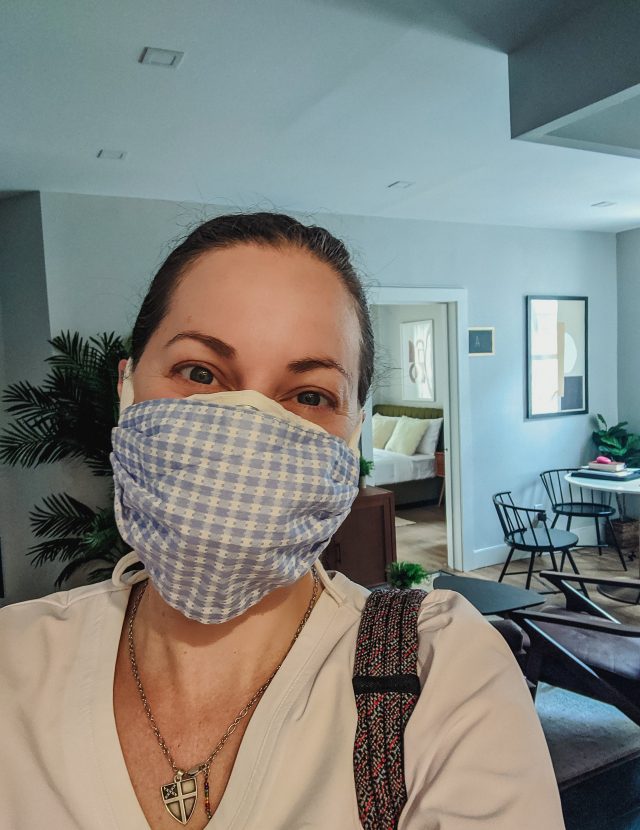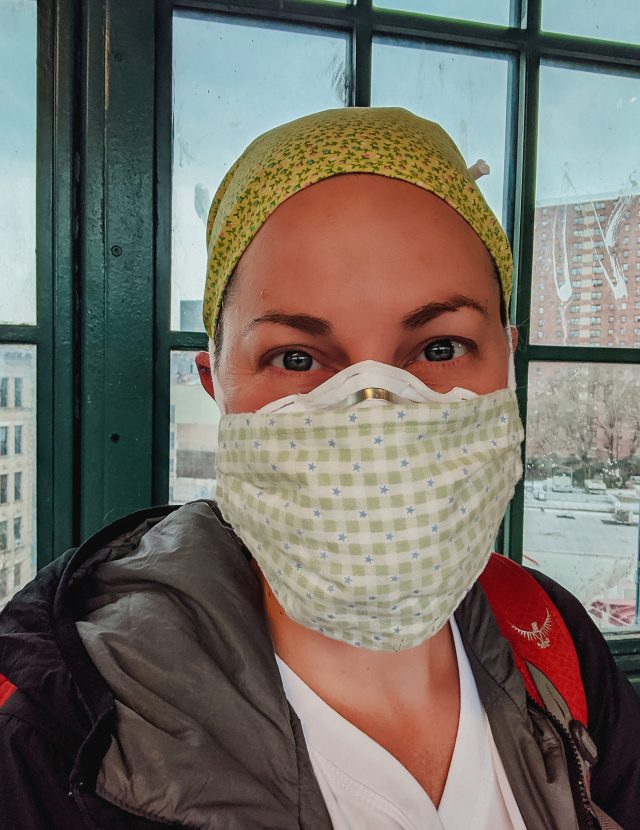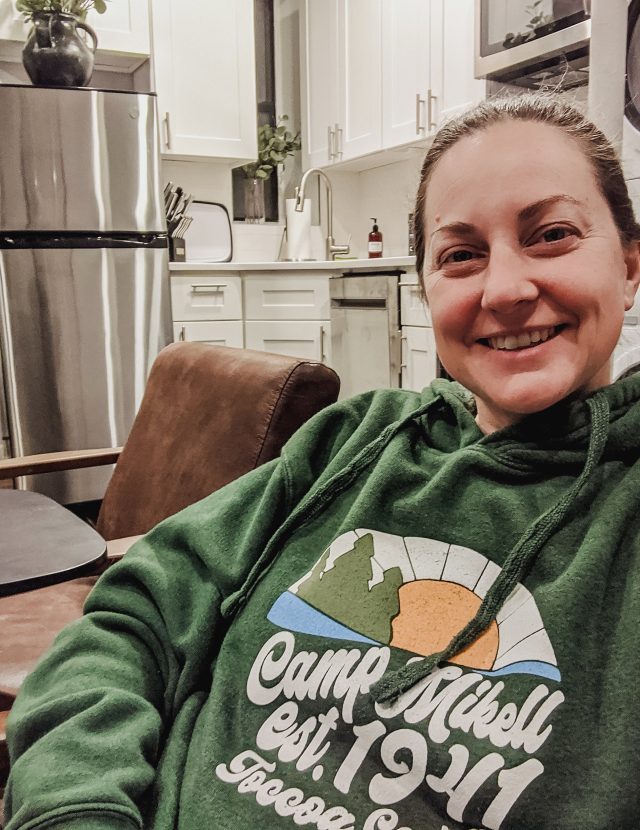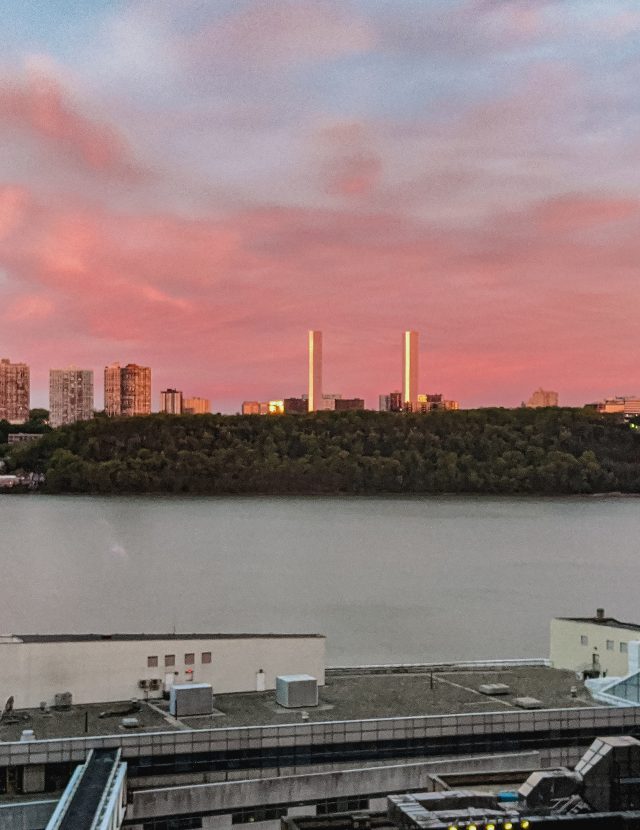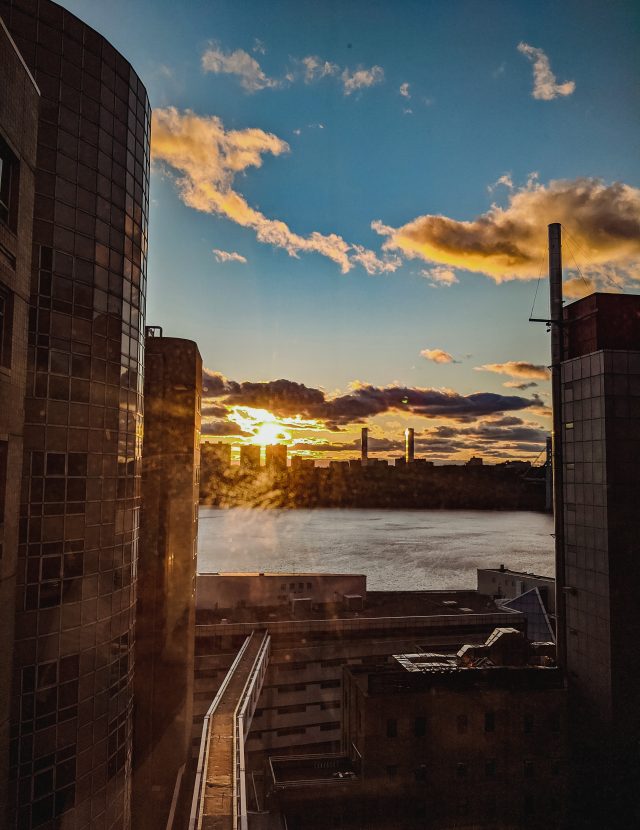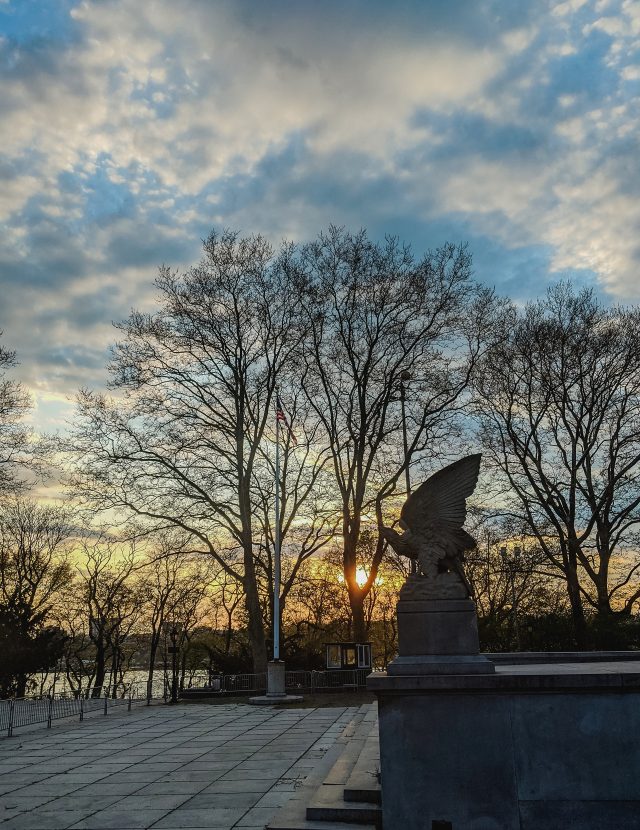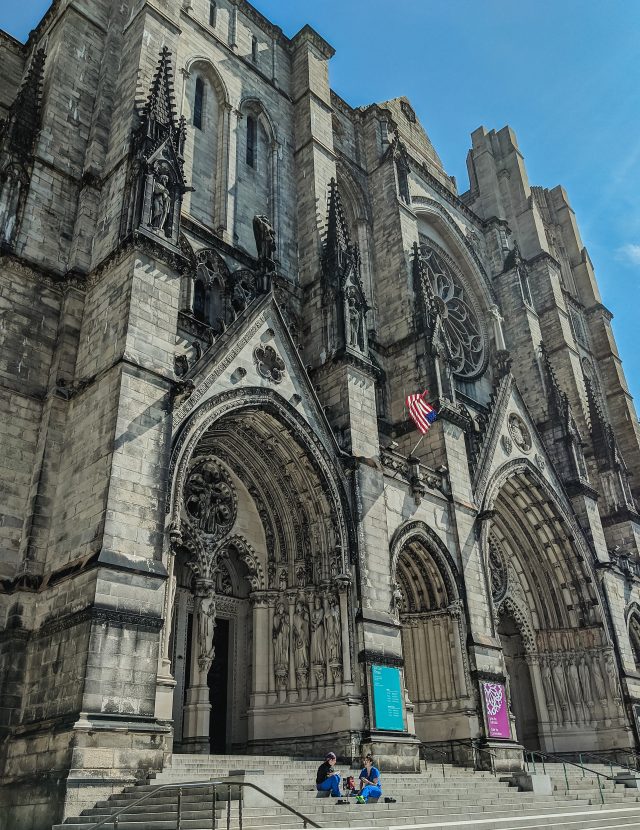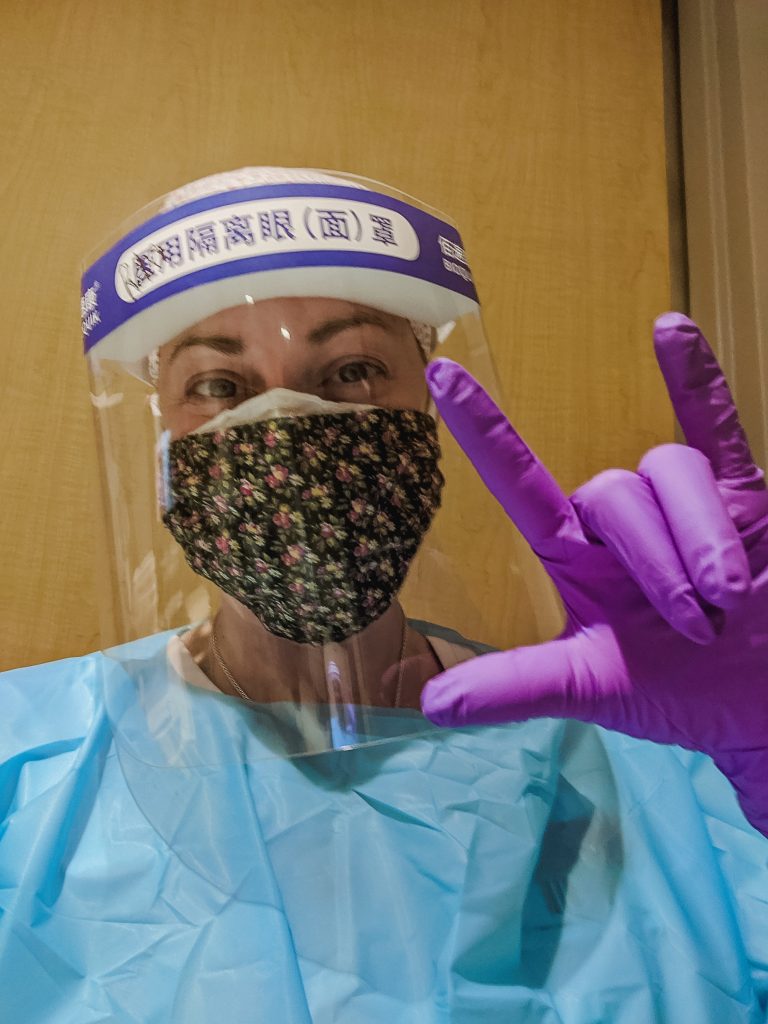
It’s 4:30 pm and Rebecca Segrest’s alarm buzzes her awake. She drowsily begins her day with a cup of coffee, the subdued whispers of outside traffic and the bright afternoon sun peeping through the window. With two masks on her face and extras in her bag, she heads out the door into the nearly empty streets of New York City. She is heading to Columbia University Medical Center to begin her shift as a relief nurse working to fight the COVID-19 pandemic in one of the hardest hit cities in the world
Hailing from Rome, Georgia, Segrest has been working in NYC since the middle of April, “I called my recruiter to tell them I wanted to help, and within four days I had my assignment. I was part of the second or third wave of contract nurses to arrive on April 12th. There were 130 people at the orientation meeting.”
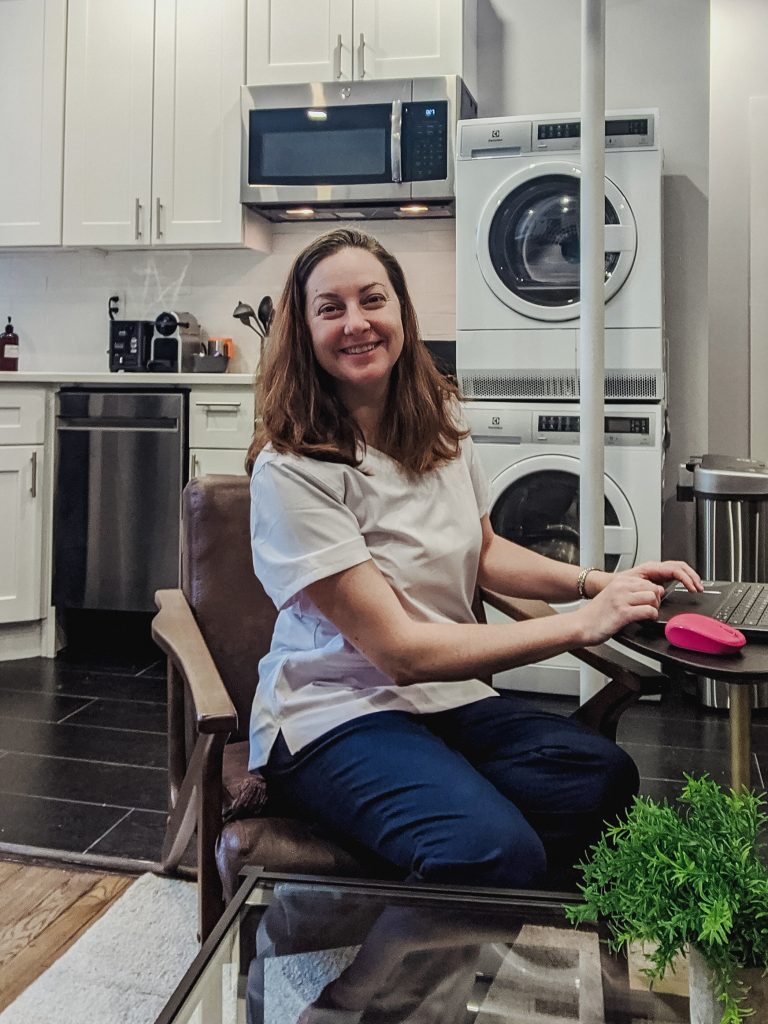
When talking about her first impressions of the crisis, Segrest describes the grace the nurses and doctors are exhibiting while dealing with literal chaos. “When looking in the Operating Room everything has been converted to ICU,” she says. “Rooms that would have normally supported one patient, one ventilator, one dialysis machine, are now crammed with five patients. Equipment has had to be modified and new lines ran; we are literally stepping over cables and squeezing between equipment to care for our patients.”
In addition to the obvious intensity within the hospital, Segrest describes another, more subtle struggle that medical professionals and patients alike are facing. “Throughout my day, there is an overwhelming sense of isolation. Through my PPE I can’t communicate to my patients; I don’t know what my co-workers look like. I go home and sit alone in my rented apartment. It’s very lonely, but I am glad I came.”
That sense of isolation extends beyond the walls of the hospital, as Segrest emotionally recalls a day she had stumbled upon a statue of a homeless man in front of the Cathedral of Saint John the Divine, “I realized in that moment, that many people feel this isolated every day, as they live among us.” As NYC’s prevalent homeless population has been especially vulnerable to the virus without anywhere to safely shelter in place, Segrest has been making a point to hand out extra masks when she sees someone living on the streets.
Segrest also describes the touching solidarity of the city. “At 7 pm everyone leans out of their windows and cheers, banging pots and pans. They are cheering for the healthcare workers. They are cheering for each other. Then an hour later the city stops. There is a silence for all those we lost.”
With so much still uncertain in both New York City and Rome Georgia one thing is for certain- Rebecca Segrest is undoubtedly a hero.
To be continued…..

